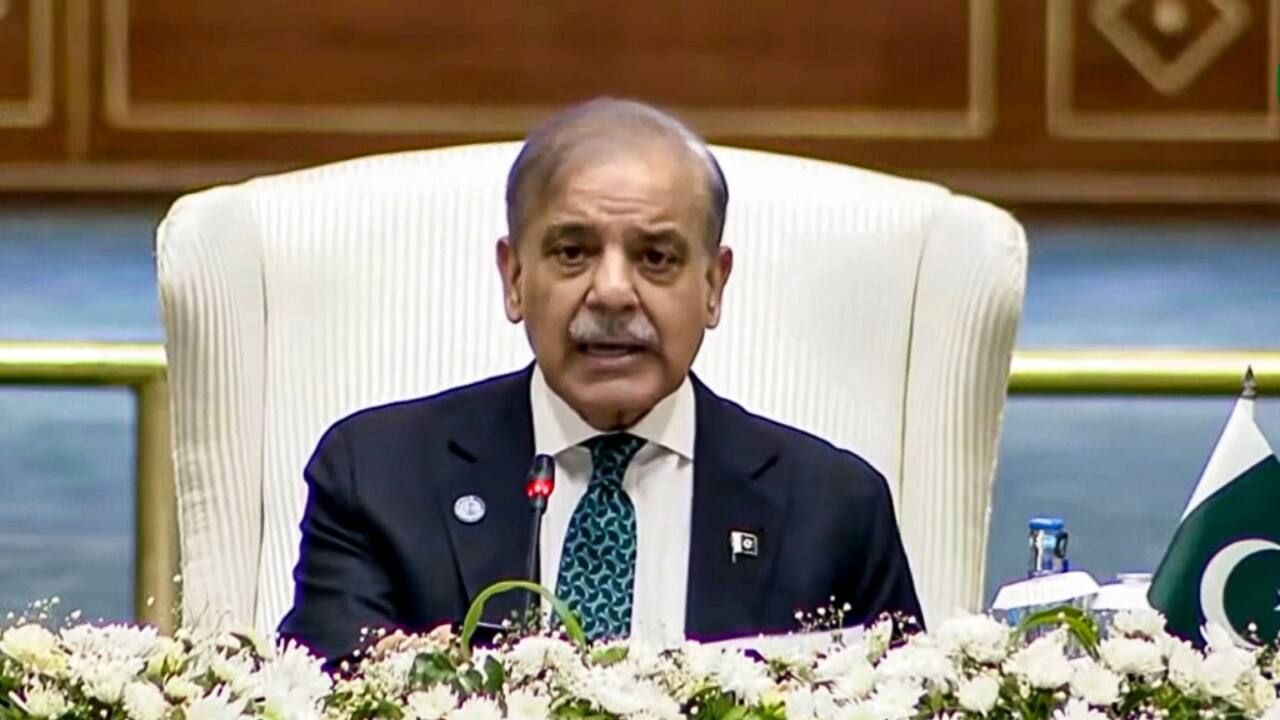
Facing increasing pressure following India's suspension of the Indus Waters Treaty (IWT) in April, Pakistani Prime Minister Shehbaz Sharif announced on Tuesday that Islamabad has resolved to undertake immediate measures aimed at boosting the nation’s ability to store water, as a response to what he described as New Delhi's use of water as a strategic tool against Pakistan.
His comments, delivered on Tuesday during a trip to the National Emergencies Operations Centre, are viewed as an anxious reaction to New Delhi’s strong stance of suspending the agreement due to Pakistan-backed terror activities, reflecting Prime Minister Modi's assertion that “water and blood cannot mix.”
The Indus Waters Treaty is a pact signed in 1960 between India and Pakistan which divides the management of the rivers within the Indus River system—assigning the eastern rivers to India and allowing Pakistan access to most of the waters flowing through the western ones. In an unprecedented decision following the terrorist strike at Pahalgam on April 22nd, attributed to LeT’s affiliate group based in Pakistan, India decided to halt operations under this treaty.
As per a report published in *Dawn*, the Prime Minister of Pakistan stated that India had "no right" to unilaterally put an end to the agreement and described this action as part of New Delhi’s “sinister plan.”
"But the adversary harbors specific malicious intentions toward Pakistan and aims to act against the water agreement. To counter this, the government has resolved that we must develop our own water reservoirs," Sharif stated, expressing Islamabad’s rising concern.
Sharif further emphasized the claim that India is attempting to "militarize water" and revealed intentions to develop "uncontested water storage infrastructure" using local resources.
“We will build this capacity with our own resources in the next few years. There is a critical role of the National Disaster Management Authority in this,” Dawn quoted him as saying.
Pakistan’s Prime Minister once again emphasized the urgent need to implement immediate actions, including expediting work on the stalled Diamer-Bhasha Dam project.
According to ANI, the Diamer-Bhasha Dam on the Indus river was originally proposed in the early 1980s, but a host of factors, including its location, environmental impact and costs had hampered efforts to build it.
Sharif’s recent remarks highlight the increasing tension within Pakistan’s government, exposing Islamabad’s vulnerability regarding water security and inadequate readiness following India’s move to cut off supplies.
Previously, Pakistan Peoples Party (PPP) leader Bilawal Bhutto Zardari, as part of the nation’s governing coalition, cautioned that India's decision to restrict Pakistan's access to water could result in “war.”
The ex-foreign minister stated, 'If India tries to cut off Pakistan's access to water, it will be viewed as a direct threat to our existence, forcing us into conflict without any alternative.'
Almost 80% of Pakistan's water supply originates from the western rivers of the Indus Basin—namely the Indus, Jhelum, and Chenab—and any disturbance to this flow poses a serious risk to the country's agricultural sector, which consumes 93% of the available water.
By making this choice, India has ensured that it won’t have to provide essential information such as flood alerts and irrigation figures—particularly during the vital monsoon season—which could leave Pakistan exposed and at risk.
